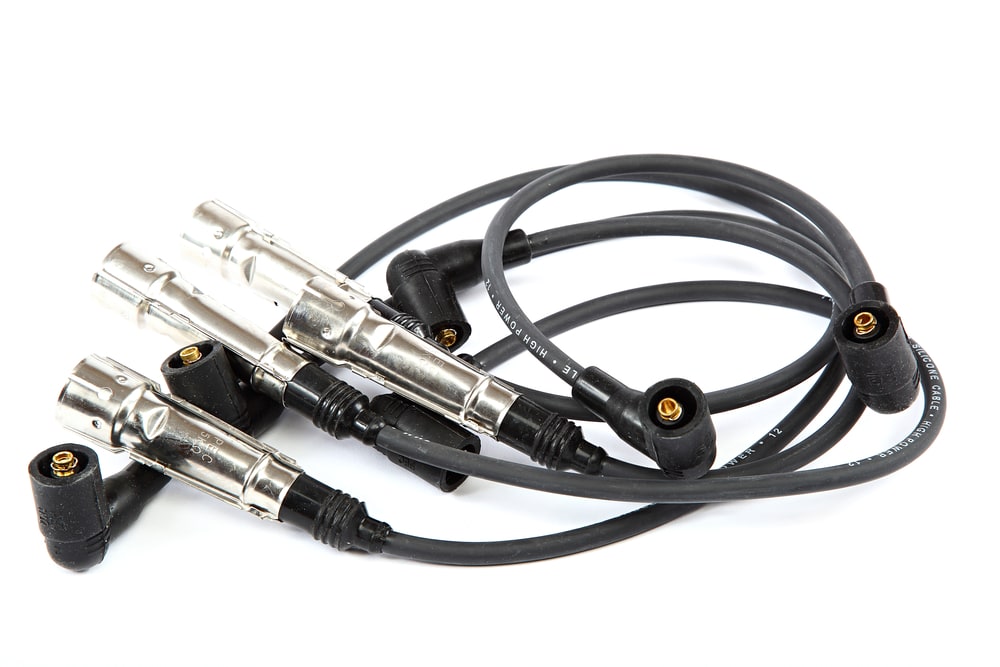

The ignition cables, commonly referred to as the spark plug wires, are an ignition system component. While the vast majority of newer vehicles have now incorporated coil on plug ignition systems, ignition cables are still found on many road going cars and trucks. The ignition system works by firing off sparks at regularly timed intervals in order to ignite the engine’s fuel mixture. It is the job of the ignition cables to carry the engine’s spark from the ignition coil or distributor, to the engine’s spark plugs.
Spark plug cables are made of durable, low resistance materials that are able to withstand the high energy of the ignition system, as well as the harsh conditions underneath the hood. As they are link that carries the spark necessary for the engine to operate, when the spark plug cables have any issues they can cause problems that can affect engine performance. Usually faulty ignition cables will produce a few symptoms that can alert the driver of a potential issue.
1. Decrease in power, acceleration, and fuel efficiency
One of the most common symptoms of an issue with the ignition cables is engine performance problems. The ignition cables carry the spark from the coil and distributor to the spark plugs so that engine combustion can occur. If there is any issue with the spark plug wires the engine spark can be disturbed, which can result in engine performance issues such as misfires, a reduction in power and acceleration, as well as a reduction in fuel efficiency. In severe cases bad cables may even result in engine stalling.
2. Check Engine Light comes on
Another symptom of a potential issue with the ignition cables is an illuminated Check Engine Light. Faulty cables can lead to engine misfires as well as excessively rich air fuel ratio, both of which can set off the Check Engine Light if detected by the computer. A Check Engine Light can also be set off by a number of other performance issues, so having the computer scanned for trouble codes is highly recommended.
3. Visible wear or damage to cables
Visible wear or damage is another symptom of an issue with the ignition cables. Old cables may dry out, which may lead to cracks in the insulation. There are also instances where the cables may rub up against a hot manifold or engine component, which may cause them to melt and burn up. Both of these issues may compromise the cable’s ability to transport the spark to the spark. This can lead to misfires and other performance issues, and in more serious cases may even lead to the cables shorting against the engine.
While many newer vehicles are now being manufactured without ignition cables, they are still found on a large number of road going cars and trucks, and play a vital role in engine performance. If you suspect that your vehicle may be having an issue with the ignition cables, have the vehicle inspected by a professional technician, such as one from YourMechanic, to determine if the cables should be replaced.



